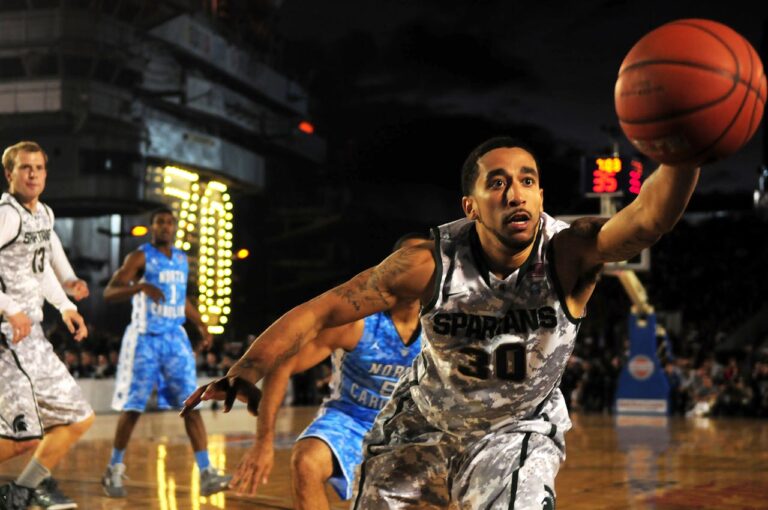It is officially April, but March Madness is not over quite yet. Both the women’s and the men’s NCAA basketball tournaments are down to the Final Four. With big sporting events such as these, come even bigger betting opportunities. The American Gambling Association (AGA) estimated that Americans would legally bet $3.1 billion on this year’s March Madness tournaments, up from $2.7 billion in 2024. For perspective, the AGA estimated $1.39 billion was legally wagered on the 2025 Super Bowl.
Although we have discussed sports betting twice before, there is still a lot to know about the nuances of betting on college sports.
The start of college sports betting
When a 2018 Supreme Court decision paved the way for states to legalize sports gambling, it wasn’t long before betting companies were inking deals with colleges to promote sports gambling on campuses. By 2021, eight universities had become partners with sportsbooks, including Michigan State University and Louisiana State University which each signed a deal with Caesars Sportsbook that year. More colleges were expected to follow suit. Additionally, about a dozen athletic departments had signed sponsorship deals with brick-and-mortar casinos helping those departments recoup some of the revenue they lost during the pandemic.
While some of these deals included funding for educating students on responsible gambling, it typically was a very small percentage of the overall deal. As noted by the New York Times in 2021, “The partnerships raise questions, however, about whether promoting gambling on campus – especially to people who are at an age when they are vulnerable to developing gambling disorders – fits the mission of higher education.”
Pushback begins
After Louisiana State University signed its deal with Caesars, the university sent an email to the student body to “place your first bet (and earn your first bonus)” which ultimately ended up in the inboxes of students who were under the legal gambling age of 21. Other partnered schools have reportedly used similar enticing language such as “free” or “risk-free” when describing promotional bets to students.
Criticism of promoting gambling on campuses began to mount and it wasn’t long before the AGA was pressured enough to announce in 2023 that its members were prohibited from sponsorship deals with NCAA departments. Many deals already in place quickly ended, even with sportsbooks that were not members of AGA, including Caesars. Michigan State University ended its partnership with Caesars in 2023, four years sooner than planned as neither partner was happy with the public controversy of the deal.
State-by-state decision
In addition to the risk of sparking gambling addiction across campus, college sports betting has also had negative consequences for student-athletes. Some athletes have described extreme bullying by their fellow students, with one student receiving the message, ”You cost me two grand, I hope your dog gets cancer.” A NCAA study last fall found abuse by “angry bettors” was growing for college athletes on public platforms. The study acknowledged that it couldn’t include private messages students receive which are likely much worse than those that are public-facing.
Additionally, student-athletes face an added layer of pressure on their performance, which has resulted in several gambling-related scandals. Three schools are currently under investigation for point-shaving, and multiple teams and students have been investigated for betting on their own performance.
Individual states have attempted to combat the problem by creating additional restrictions for gambling on college sports. This includes prohibiting team and player proposition bets (wagers that don’t affect the final score, such as how many points a particular player will score or which team will score the first point) and prohibiting betting on in-state schools, with some states allowing exceptions for major tournaments such as March Madness.







